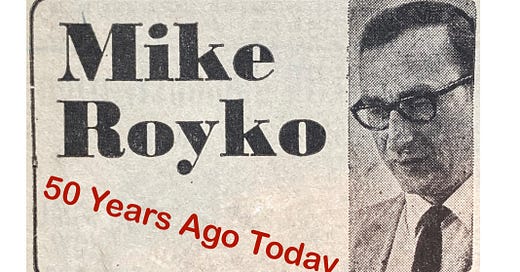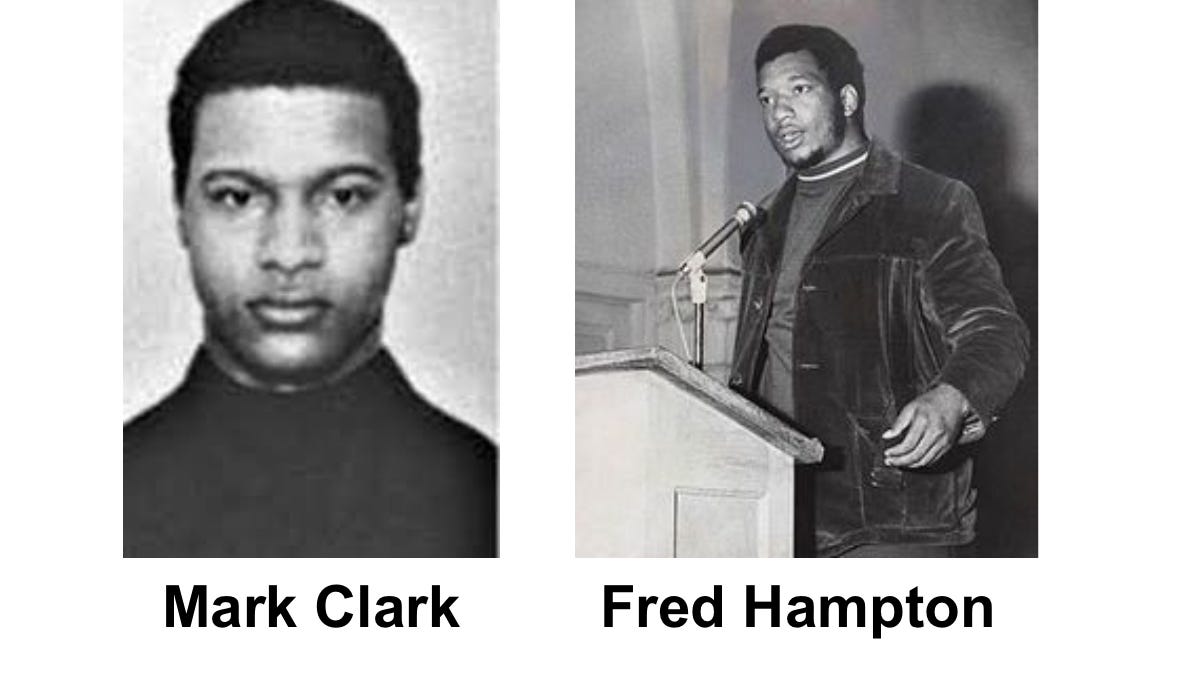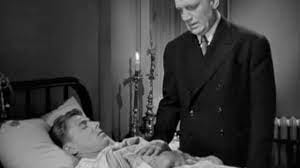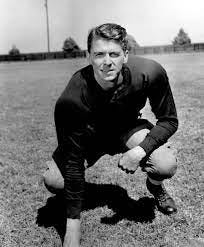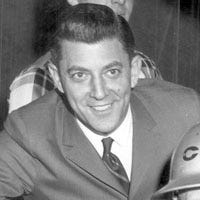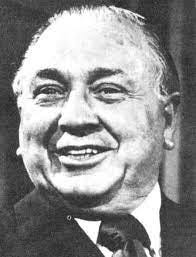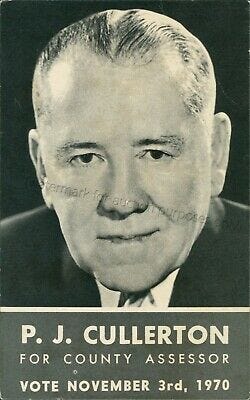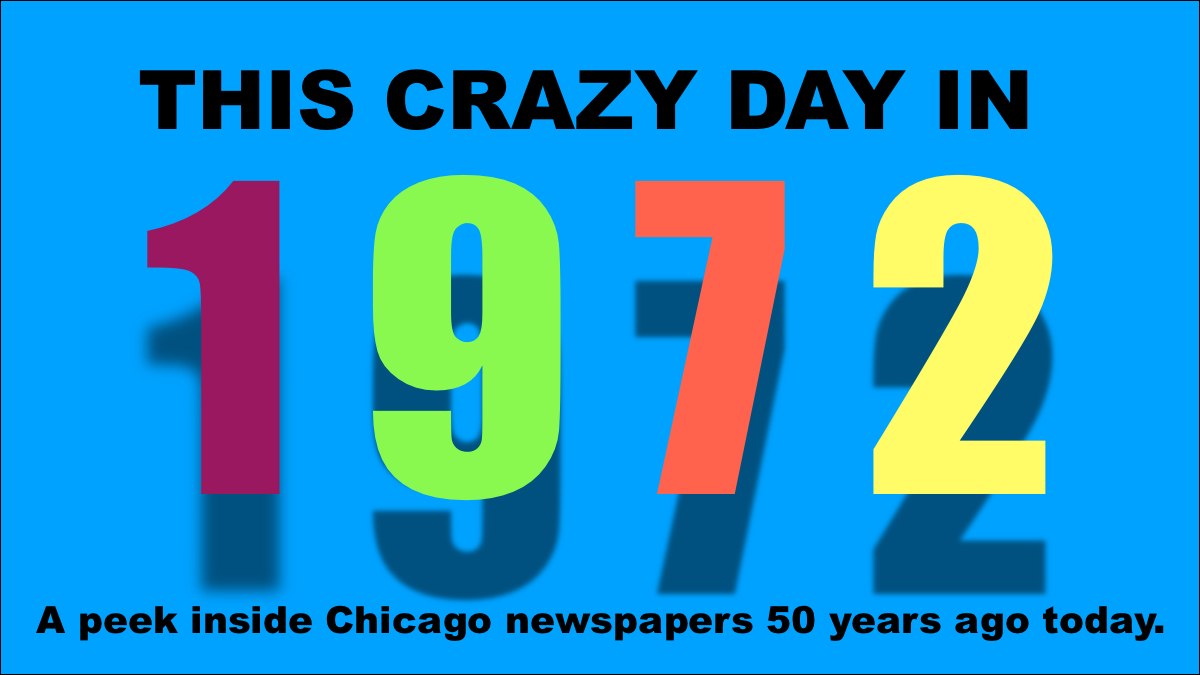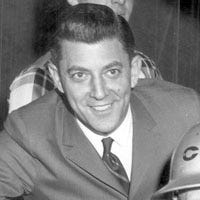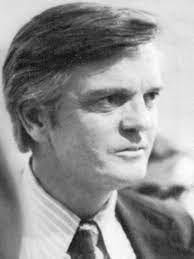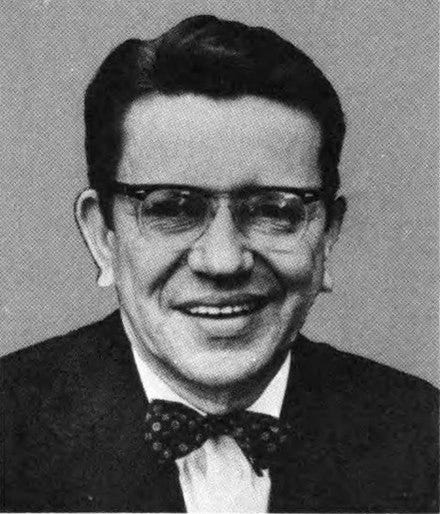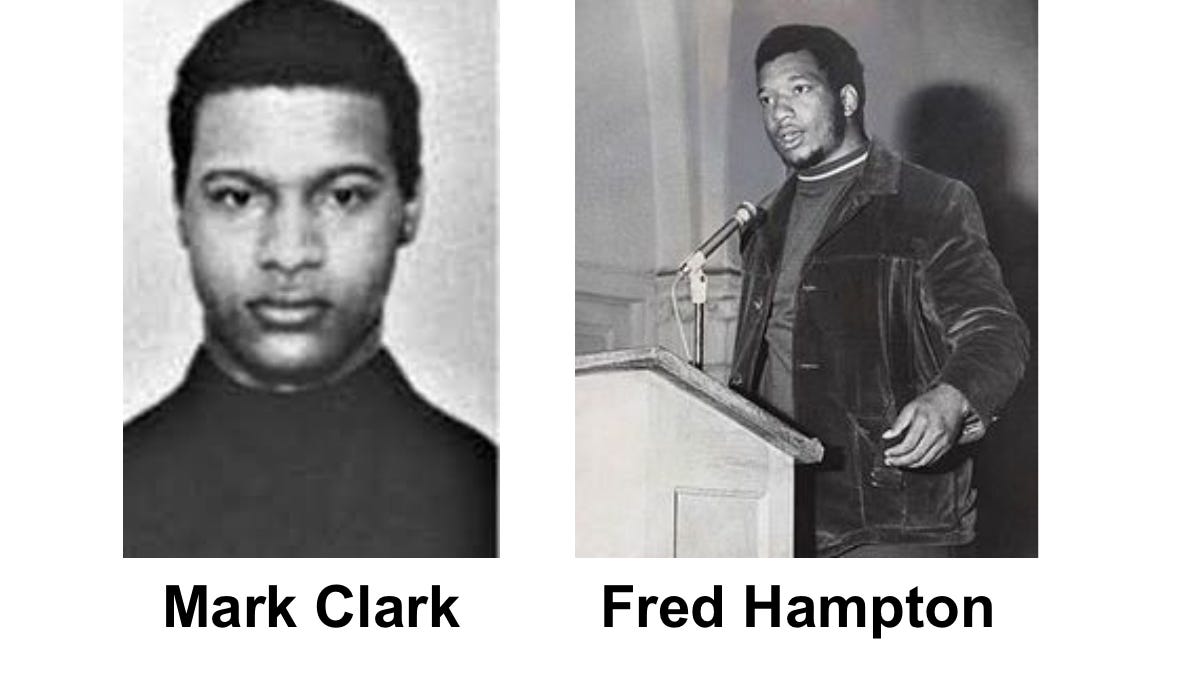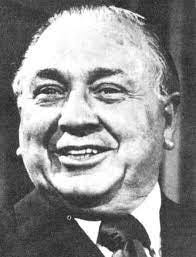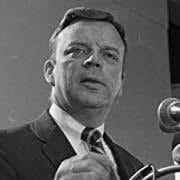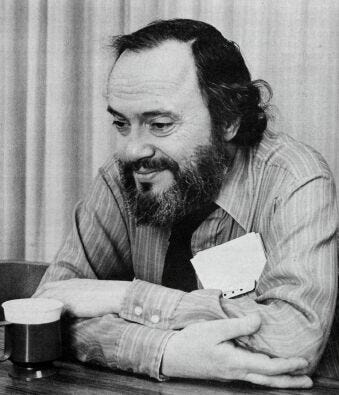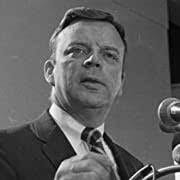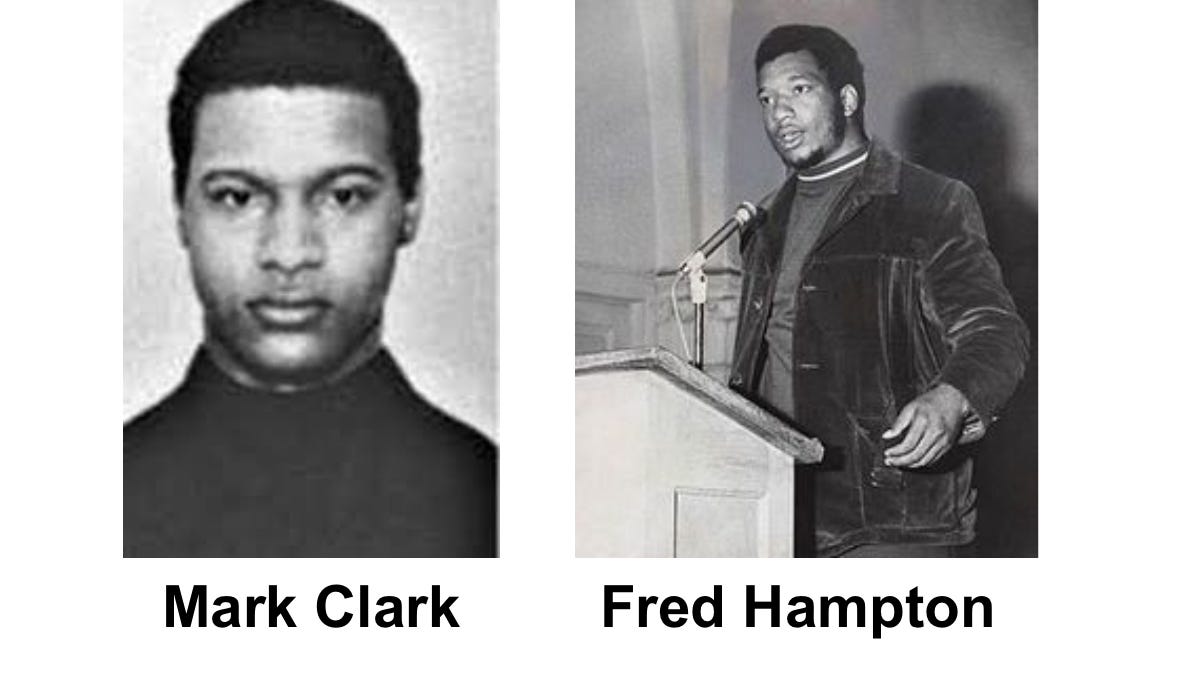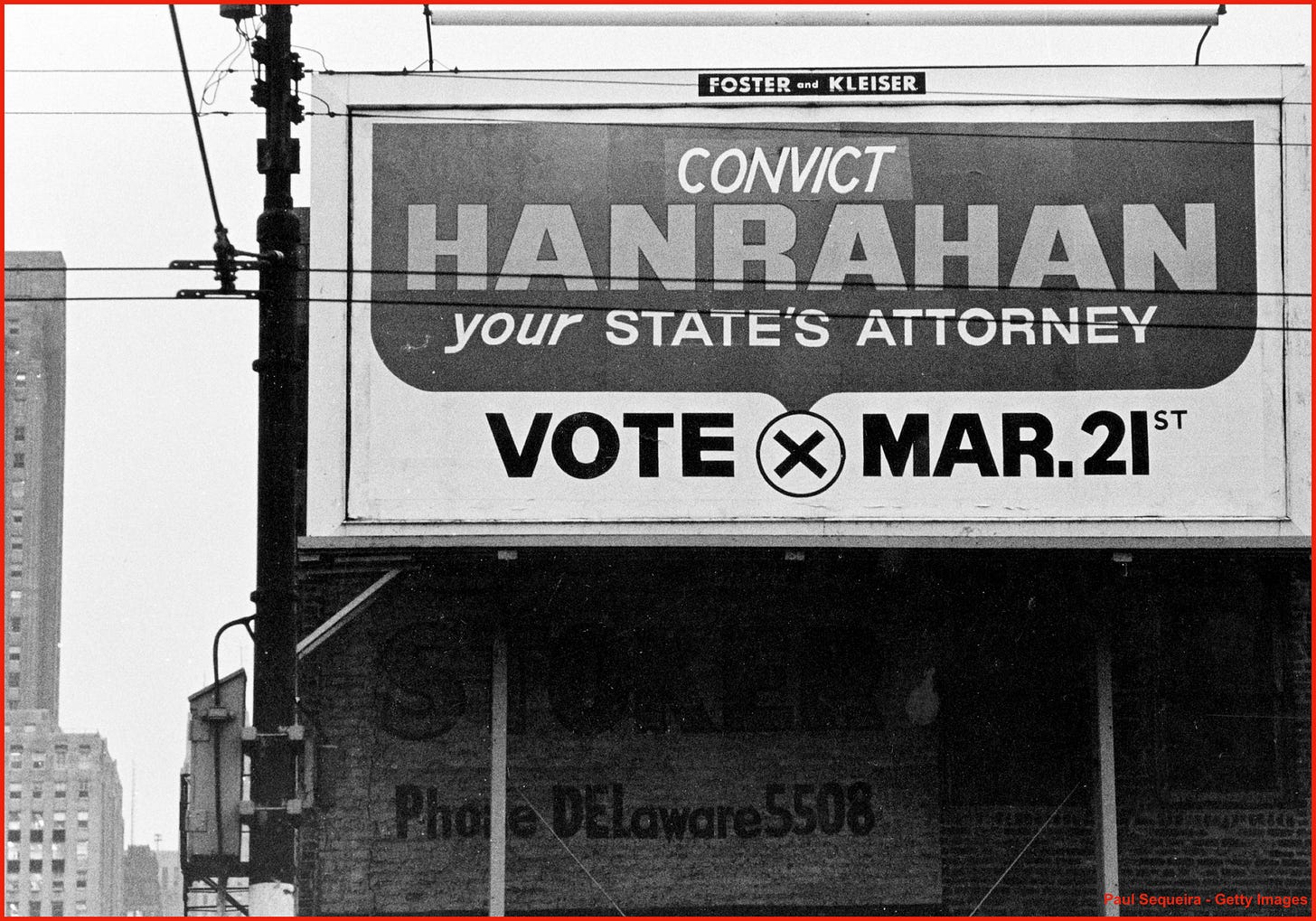Mike Royko 50 Years Ago Today: Mike hangs out at Hanrahan campaign HQ for election night
Weekly Compilation March 20-26, 1972
To access other parts of this site, click here for the Home Page.
Why do we run this separate item, Mike Royko 50 Years Ago Today? Because Steve Bertolucci, the hero of the serialized novel central to this Substack, “Roseland, Chicago: 1972,” lived in a Daily News household. The Bertolucci’s subscribed to the Daily News, and back then everybody read the paper, even kids. And if you read the Daily News, you read Mike Royko. Read the daily Royko briefing Monday-Friday on Twitter, @RoselandChi1972.
HEY, DON’T MISS THE WEEKEND EDITION, LAST ITEM!
This week, the Weekend Edition brings you a talk with Don Rose, who managed Donald Page Moore’s independent Democratic primary campaign for State’s Attorney against Ed Hanrahan. Don gives me a terrific 50-year-old scoop!
March 20, 1972
Winning One for Ol’ Parky
Mike has fun with Ray Berg’s pep talk to Mayor Daley’s precinct captains before tomorrow’s primary election, where nobody knows WHAT will happen in the crucial State's Attorney race.
FYI, the Daily News front page headline over the past weekend was “Daley’s power on the line!” Daily News political editor Charles Nicodemus described the frenzy of Machine workers working to make sure Mayor Daley’s candidate for state’s attorney wins the Democratic primary, because it’s a toss-up.
Recall that incumbent State’s Attorney Ed Hanrahan is under indictment for allegedly conspiring to obstruct the investigation of his office’s 1969 pre-dawn police raid of a Black Panther apartment, killing Fred Hampton and Mark Clark. Daley dropped Hanrahan from the Machine’s slate of primary candidates on the last day possible to get a new candidate on the ballot, and handed his endorsement instead to Traffic Court Judge Ray Berg.
But Berg had his own instant mini-scandal when Mike Royko broke the story that with a single day to collect 6,000 voter signatures on petitions to get Berg on the ballot, Machine flunkies had engaged in an orgy of forging. Several ongoing investigations have been trying to kick Berg off the ballot, unsuccessfully. But Berg refused to engage in campaign debates with Hanrahan and the third opponent, independent Democrat Donald Page Moore.
Now, nobody knows what will happen on primary day. Will Hanrahan beat the Machine?
So Ray Berg gave the Machine precinct captains a pep talk, which Mike compares today to Knute Rockne’s famous “Win one for the Gipper” speech to Notre Dame football players.
“I have to wonder if Rockne’s speech wasn’t on Ray Berg’s mind Sunday when he tried to charge up a gathering of precinct captains,” writes Mike. “Berg was telling them why they had to get out there and bring in votes for him on Tuesday. He said:
“‘We are not just fighting for Ray Berg, we are fighting for P.J….I’d like every one of you to be able to shake hands with Parky on election night and say: ‘We did it for you.’”
Mike explains: “Scandal fans will quickly recognize this ‘P.J.’ as Assessor Parky (Hi Keed) Cullerton, friend of wealthy high-rise owners and other unfortunates.”
Mike is referring to the rather astonishing scandal that surfaced just as Cullerton ran for re-election in 1970—and won, despite the fact that he admitted severely under-assessing luxury highrises owned by his friends, particularly Arthur Rubloff (particularly Rubloff’s Brunswick Building) and Charlie Swibel (particularly Swibel’s Marina City).
With no irony or shame, Cullerton insisted he had to give tax breaks to the highrises because “We must encourage business and development or we will very soon destroy the tax base from which we draw a great portion of the funds to build and staff our schools and provide other governmental services.”
Cullerton told the papers that “economic hardship and inadequate return on investment” were some of the reasons he gave tax breaks, and since the developers showed him their tax returns, the basis for his assessments were confidential and nobody could see how his office came up with its numbers.
An Illinois Senate subcommittee investigated, but couldn’t come up with anything to prosecute. Mayor Daley called it a “political committee”--because if it wasn’t political, why couldn’t they wait until after the 1970 election?
Right after the 1970 election, Cullerton hired Thomas Tully as his new deputy assessor to overhaul the office’s assessment methods. He also hired Real Estate Research Corporation to write a report on revamping the office. And it all went away. The Tribune even congratulated Cullerton for promising to institute reforms, despite not getting indicted. “We commend Mr. Cullerton,” the Trib wrote in an editorial, and it “urged” the County Board to give Cullerton’s office budget a lot more money to hire new people to make its reforms. Spoiler alert: Cullerton got the money and jobs.
So really, Cullerton was rewarded—more money and lots more jobs for his office.
Mike would like to see Berg’s speech put into a movie, just like “Knute Rockne, All American” with Ronald Reagan as George Gipp, the aforementioned “Gipper.” Mike refers generically here to the movie, probably because he couldn’t just go to IMDB and look up the exact title as I did.
But for a movie, Mike knows Berg’s speech would have to be longer.
“So here is my gift to the future screen writer,” writes Mike, laying out a half column’s worth.
A sampling:
“Men, the day after tomorrow, we go out there for the big one, the one we’ve all been waiting for. Everybody’s going to be watching us. The poll watchers will be watching us, the BGA will be watching us, the FBI’s gonna be watching us, the reporters are gonna be watching us.
“But we’re gonna win anyway.”
…. “And I don’t have to remind you what Little Parky has meant to our team….Just ask Artie Rubloff. Just ask Charlie Swibel. He completed some passes to them that would be in all the record books, if anybody was crazy enough to leave those kinds of records laying around.”
… “So men, I’m asking you to charge out there on Tuesday and remember one thing. Remember what I--coach Rockhead--told you to do: Win one for the Gypper!”
If you dig Mike Royko, you’ll want to see the news he’s writing about. Check it out here!
March 21, 1972
Aldermen, or apemen?
One of Mike’s occasional columns of “Letters, calls, complaints and great thoughts from readers”.
No doubt Mike threw this together today so he focus on the wild last hours of the 1972 primary election, pitting indicted incumbent State’s Attorney Ed Hanrahan against Mayor Daley and his Machine.
“JAMES WOODS, Chicago: You wrote that you would give people advice on how to pull off crooked deals, so they would have the same advantages as the wealthy. I have an idea, and I want to know if it is possible.
[For that column, see Royko here, under March 16.}
“Anytime I forget to pay a parking ticket, I get a notice in the mail and have to pay a penalty. If I am late on paying the tax on my house, I pay a penalty….Now I read in your paper that the assessor’s office didn’t put some of Charles Swibel’s real estate on the tax rolls, which would save him about $150,000 in a year. They just forgot, or made a clerical error, or something.
[Note: This is a whole new Parky-Cullerton-giving-his-pal-Swibel-a-break thing. I guess those 1970 reforms didn’t quite take. Maybe they didn’t give Parky enough new jobs and money.]
“This gives me an idea for a way to get the city to forget about me. I will have my name legally changed to Charles Swibel. Will it work?”
COMMENT: If you wear pointy shoes and lots of Brilliantine.
RICHARD FRIEDENBERG: The Daily News, and you in particular, have copped out. Your paper has endorsed the machine’s candidate for governor. It would really have been nice to see at least one of the major papers endorse Dan Walker. I thought if there would be one, it would be The Daily News.
“I am working in the 40th Ward for Walker. Most of the people I talk to are apathetic. They say I’m naïve and Walker can’t beat the machine.”
“COMMENT: I have nothing to do with this paper’s endorsements, but if I did, I might endorse Simon. Or I might endorse Walker. Both of them would probably make good governors. Simon, by the way, is not really the Machine’s choice. He forced himself upon Daley by being elected lieutenant governor in 1968.
“Daley knew that if he didn’t accept Simon, whom he dislikes, he would have to fight Simon’s enormous Downstate popularity in a primary fight. Now stop whining and go work your precinct.”
March 22, 1972
Hanrahan’s revenge
The red-hot 1972 primary is over. Mike’s got a special column today about hanging out primary night at the campaign headquarters of that nut, indicted incumbent State’s Attorney Ed Hanrahan.
Recall Mayor Daley kicked Hanrahan off the Democratic machine’s primary slate, but Hanrahan ran anyway against Daley candidate Traffic Judge Ray Berg, and independent Democrat Donald Moore.
Hanrahan is indicted with 13 codefendants for allegedly conspiring to obstruct the investigation of his office’s 1969 pre-dawn police raid on a Black Panther apartment, killing Panthers Fred Hampton and Mark Clark. They are accused of manufacturing evidence and committing perjury.
Primary night: Hanrahan’s headquarters is bedlam--a happy one. Hanrahan takes calls from the precincts himself, getting vote counts, “and the news was all good,” writes Mike.
“Cold Duck wine gushed from a fountain, a Dixieland band roared, and people poured off the elevators or from the stairs to join in. ‘Where’s the boss,’ they were asking. ‘Is the boss going to make a statement?’
“The boss? They were talking about Hanrahan, not that other well known fellow.”
Hanrahan’s sister-in-law says to Mike, “with a slight touch of spite,” “History is being made here tonight. Don’t you feel fortunate that you have a chance to write about it?”
Mike asks Hanrahan how he feels.
“I feel great. And how do you feel?”
Mike evades, and asks again.
“It was a picnic. A real picnic,” says Hanrahan. “I had a good time.”
Mike asks who thought of spiking the fortune cookies at an event for Mayor Daley’s precinct captains with fortunes that read “Hanrahan is the man.”
Hanrahan’s brother Bill takes credit.
“It came to me while I was having a beer.”
Hanrahan’s other brother, Dick, thought of Hanrahan’s magic trick at the St. Patrick’s Day parade. When Hanrahan walked by Mayor Daley on the reviewing stand, he tipped his trick top hat and two white doves flew out of it.
Mike asks when they’re stopping at Democratic headquarters “to begin healing the breach.”
Brother Bill “looks incredulous. ‘You can’t be serious. You know Ed. Do you think HE is going to walk over THERE? They know where to find HIM. Him Ed go THERE? That is a real laugh.’”
Mike does go to the Democratic headquarters in the Sherman House Hotel.
“It was like walking into Parlor B of the Lain and Son chapel,” he reports. That’s a now-defunct funeral home.
“Every few minutes, one of the mayor’s sons would come out of his private office, whisper to a flunky, look at a TV set giving the returns, and they would shake their young heads. Suddenly their political inheritance was shrinking fast.”
“A ward boss came in, looked around, and said: ‘This is like waiting outside the maternity ward when somebody is having a miscarriage.’”
Are you reading the serialized novel this Substack is built around? Don’t miss Chapter 4: The Gately’s Doughnut—or start with Chapter One: A Good Life Ruined.
March 23, 1972
The Machine has had it!
Mike sums it all up in three sentences.
After Mayor Daley's candidates for governor and state's attorney lose in the Democratic primary, Mike sums up the state of Chicago politics in three sentences.
“It takes a while for the message to sink in because it seems unbelievable. The automatic reaction is to look for subtle reasons for the outcome of this week’s primary elections and to overlook the obvious. But the obvious is that the Machine has had it.”
Dan Walker won the Democratic primary nomination for governor, over Mayor Daley’s candidate, Illinois Lt. Gov. Paul Simon. Indicted incumbent State’s Attorney Ed Hanrahan beat Mayor Daley’s candidate, Traffic Court Judge Ray Berg.
“And what happened was that the last of the big-city powerhouse organizations fell apart, and will not be the same ever again….This time Daley lost within his own party.”
Besides Walker and Hanrahan, “a crowd of independents shoved Machine flunkies off the ballot for Legislature….It means that for a variety of reasons, independent political thinking has finally caught up with Cook County, the last of the holdouts.”
“Part of the story can be seen in the cold statistics,” writes Mike. Take the once-reliable 24th ward, which used to produce up to 20,000 votes. This time, Irwin Horwitz, “the white overseer of a black slum plantation, had to use every vote-stealing trick to find 7,000 votes for Ray Berg.”
“Why? Look back to 1968 and Daley’s ‘shoot to kill’ order. In each election since, the black vote has been shrinking.”
Reliable white Gramma voters are dead, Mike notes. Their kids have moved to the outer neighborhoods and suburbs where a precinct captain can’t do much for them.
But Mike pins the most blame on how the Machine is run.
“A successful business has to move its bright young people up. It can’t rely on oldtimers and their sons and cronies. But some of the Machine’s leaders look like they’re casting for ‘Guys and Dolls.’….Little wonder that Dan Walker came on like a member of the Kennedy clan.”
Mike does not miss the chance to call Daley sons Richard M., Michael and Bill Daley, who spent election night with their dad, “Curly, Larry and Moe.”
“And on Wednesday morning voters were looking at each other all over Illinois and marveling at what they had done. They had kicked hell out of city hall just by walking in and voting, as they were taught to do in high school civics. Now that they’ve seen how easy it is they’ll probably do it again.”
March 24, 1972
Giving credit where it’s due
State’s Attorney investigators arrested 20 people for vote fraud and closed down some polling places during this week’s 1972 primary election, and Ed Hanrahan is taking all the credit.
“I’m surprised that he won’t give full credit where it is due,” writes Mike. Because Hanrahan’s investigators were “secretly coached in advance by a very surprising crew of experts--the campaign workers for Donald Page Moore, his opponent.”
“About two weeks before the primary, one of Hanrahan’s top aides quietly got in touch with Moore’s staff and asked where to look for vote fraud, and how to spot it. Moore’s men filled them in, ward by ward and precinct by precinct. They told them who to watch for, how some voting machines would have votes on them before the polling place even opened, and so on.”
The independent workers know where to look for vote fraud, while Hanrahan’s guys have never done it before, Mike explains, adding a quote from Chicago political veteran Don Rose:
“‘If I could put all of the votes together that the Machine has stolen from people I’ve worked for,’ said Don Rose, Moore’s campaign manager, ‘I’d probably have enough to elect a President.’”
Make some money off “Hanrahan boosters” in the November election, Mike advises.
“Bet them that nothing much will be done by Law and Order Eddie about the Berg petition forgeries, and that the 20 people arrested on Tuesday will get off with nothing more than a slap on the wrist, if that much.”
…. “You can also bet them that he won’t make 20 arrests or close down any polling places [next November]. Why would he? You don’t bite the hand that steals for you.”
As we here all know, weekends could be sad for a Daily News family because Mike Royko wasn’t in the Daily News’ single weekend edition. So we look for Mike elsewhere on weekends.
Don Rose, Mike Royko and the nutty 1972 State’s Attorney primary
Does Don Rose even need an introduction?
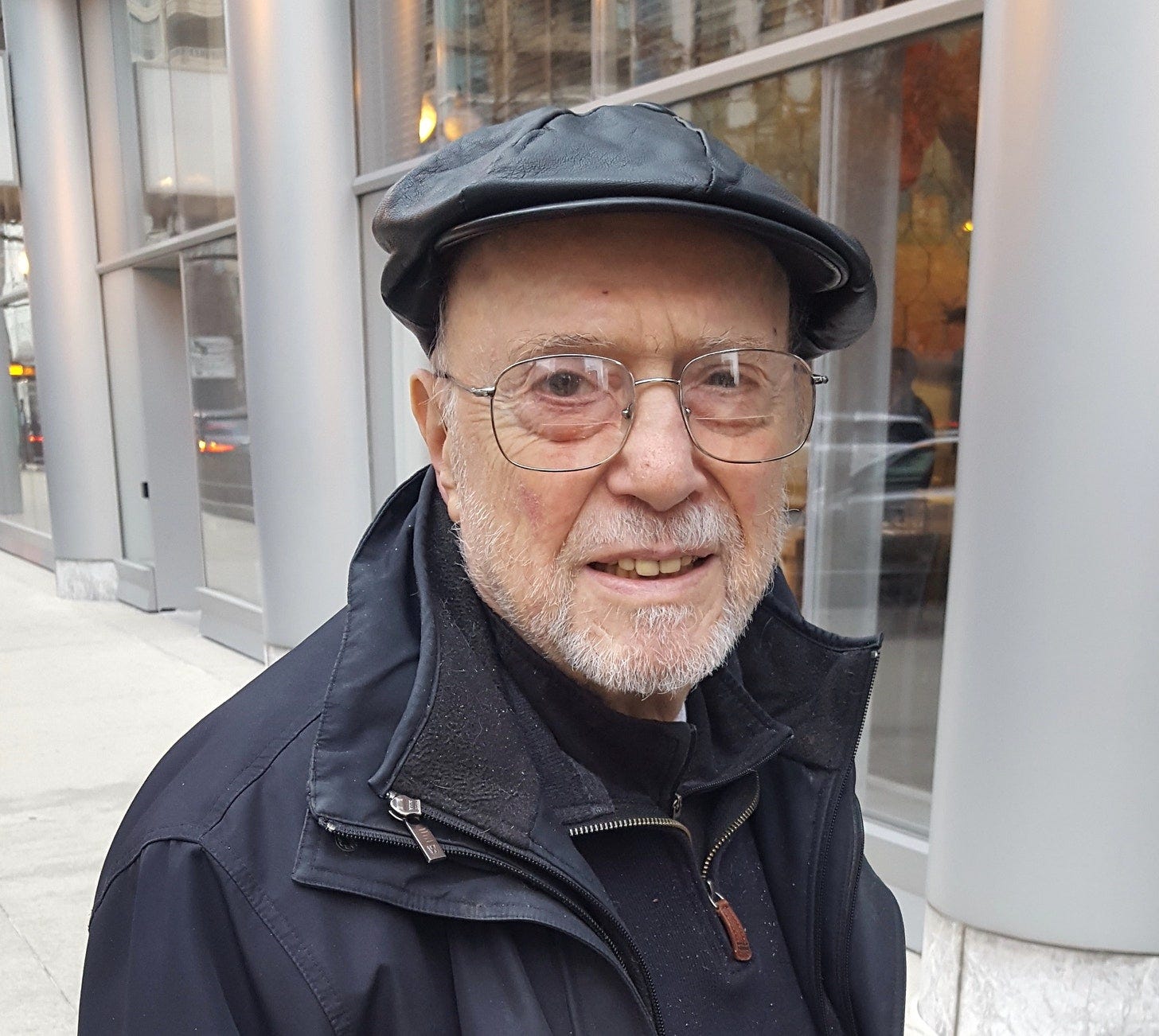
He is Chicago’s true Renaissance man.
You may know him as a veteran music critic—and you’d be shocked to find out he’s also a veteran political consultant with Chicago history dripping off all ten fingers from dipping them into just about every important campaign pie in town.
Or perhaps you know Don because he smashed the Machine in 1979 when he ran Jane Byrne’s mayoral campaign all the way up to the big fifth floor office in City Hall—and you’d be shocked to find out he’s also a restaurant critic with delicious tidbits dripping off all ten fingers from dipping into every eating establishment in Chicago, not to mention Paris.
This is a guy who played trumpet and hung around jazz clubs as a teenager in the ‘40s so much that he befriended Charlie Parker and Miles Davis, and ended up naming his son for Max Roach. See Jonathan Alter’s recent wide-ranging interview with Don for that anecdote.
Don has a way of hanging around the right places at the right times. When he hung around Paris in the ‘50s, naturally he met up with James Baldwin. From Rick Perlstein’s terrific piece on Don in The Nation from 2013:
“Jimmy” Baldwin took him to meet Richard Wright, who was by then a little bit nuts: “When we take over,” he said, “you guys”—he waved to the white hipsters in the room—“we’ll save you.”
After Don came back home to Chicago in time for the turbulent ‘60s, he became an integral part of the city’s burgeoning civil rights scene. Don served as press secretary for Martin Luther King’s Chicago work, AND for the National Mobilization Committee to End the Vietnam War during the 1968 Democratic Convention. You’re looking at the guy who told Martin Luther King to go shoot pool on the West Side to look like a regular Joe, as well as the guy who came up with the resounding refrain, “The whole world is watching.”
We’ll hear more from Don in future weeks because he ran Republican Bernard Carey’s campaign against Ed Hanrahan in the 1972 general election. There will be plenty to chew over in Mike Royko and the newspapers from that campaign. But we talk to Don today because Mike quoted Don in his March 24 column about how the Donald Page Moore campaign helped Hanrahan’s people look for voter fraud on primary Election Day:
“If I could put all of the votes together that the Machine has stolen from people I’ve worked for,” said Don Rose, Moore’s campaign manager, “I’d probably have enough to elect a President.”
Donald Page Moore’s primary campaign for Cook County State’s Attorney, as an independent Democrat seeking to knock out the Machine’s indicted incumbent Ed Hanrahan, came together from an informal group of about 20 to 30 friends. Don says they included (but were not limited to) people from Independent Voters of Illinois (IVI), Michael Shakman’s law firm (the man who put the Shakman in Shakman Decree), and the political fight over the Illinois Constitutional Convention (Con-Con).
These friends had, of course, closely followed Hanrahan’s 1969 pre-dawn police raid on a West Side Black Panther apartment that killed Fred Hampton and Mark Clark, and the aftermath. Hanrahan and 13 co-defendants would be indicted for allegedly obstructing the investigation of that raid, accused of perjury and manufacturing evidence. Hanrahan would refuse to take a leave of absence while under indictment, and he certainly refused to not seek re-election. Despite a loud outcry from many quarters including the Black community, Mayor Daley’s regular Democratic organization (better known as the Machine) endorsed Hanrahan for the primary.
“We were pissed when they nominated Hanrahan,” says Don, “and there were discussions about what we should do and so on.”
When Donald Page Moore decided to run against Hanrahan shortly before the filing deadline, the group quickly coalesced around him. Moore’s official campaign manager was Chicago attorney Judson Miner, who would serve as corporation counsel for Mayors Harold Washington and Eugene Sawyer, 1986-89. “But he was new at it, and I was guiding him,” says Don. “I think they called me ‘chairman,’ but operationally I did much if not all the actual management duties, and occasionally I was referred to as the campaign manager.” That includes in Royko’s column.
At that time, Moore worked for one of the largest law firms in the city. He’d previously worked for Attorney General Robert F. Kennedy, representing the Justice Department in the case that sent Jimmy Hoffa to jail.
So Moore’s campaign wasn’t a quixotic one. He had the legal chops to make a formidable opponent. And he smartly—no doubt in part thanks to savvy counselors including Don Rose—made his case against Hanrahan based on Hanrahan’s overall record, not just the Black Panther raid.
As Moore told the Tribune’s George Tagge, “I’m not going to run as an outraged liberal weeping over some individual’s case. What is involved is the quality—the professionalism—of our law enforcement. It’s a poor show at 26th and California.”
But Mayor Daley screwed up the whole campaign when he suddenly dumped indicted Ed Hanrahan from the regular Democratic organization slate, and flipped the endorsement to Traffic Court Chief Judge Raymond Berg. Hanrahan refused to drop out. Now the primary became a three-way race, splitting the anti-Hanrahan vote or splitting the anti-Machine vote, depending on your POV.
And what an unpredictable opponent Moore’s campaign had in Edward V. Hanrahan. If you’ve been following via THIS CRAZY DAY IN 1972 , you’ll know Hanrahan gave wild, furious press conference speeches that drew reporters like a media black hole. The Sun-Times’ Tom Fitzpatrick covered a doozy of a press outing on March 20 in his “Fitz” column, with Hanrahan ranting against the Sun-Times and quoting Roman Polanski’s “Macbeth” film at reporters.
Hanrahan also crashed Machine ward meetings set up for Ray Berg to talk to Daley’s precinct captains, giving those crucial grassroots workers his own spiel.
Then there were the fortune cookies smuggled into an event for all Mayor Daley’s precinct captains—spiked with fortunes that read “Hanrahan’s the Man.” As Mike disclosed in his March 22 column, that was Hanrahan’s brother Bill’s idea.
And let’s not forget Ed Hanrahan marching in the St. Patrick’s Day Parade with a trick top hat. As he passed Mayor Daley on the reviewing stand, Hanrahan tipped the hat and flipped the switch on a false bottom, releasing two white doves.
“He had the birds, and his brother was very clever. Our only really good stunt was the billboard,” says Don now with a touch of regret. It was “our best trick,” he recalls, one of the scoops he handed to the dailies to give each paper a taste.
“There was a big billboard on the edge of the Loop that said ‘Re-elect Hanrahan your State’s Attorney,’” he explains. “A couple of our guys had the idea to reproduce this red slash that said ‘re-elect’ with the letters ‘convict’ instead. We gave one of the papers the tip that it would be up there. Not that they should take pictures of our people pasting it up, but that it would be there at a certain time because we didn’t know how long it would last before it was torn down.”
Here is that picture, taken by Paul Sequeira. It’s now available for the low low price of $150 from Getty Images, so please look at it a long time.
The few mentions I could find about the Hanrahan billboard said the prank was done by “protesters.” So apparently that was the cover story, and it looks like Don has given me a 50-year-old scoop which I’m pleased to share. Now it can be told: the Moore campaign doctored the Hanrahan billboard.
Because I’m obsessed with the differences between then and now, I have to point out that today, this prank would be confined to using Photoshop or Pixelmator to doctor a photograph of the billboard. It would take about two minutes after snapping the picture with a cell phone. Then presto, a social media meme would hopefully go viral. But in 1972, somebody had to physically reproduce that sign lettering on whatever material you used on billboards, then climb up there and paste “convict” in the right place. Don says the altered billboard was up for at least two days because “it took them [Hanrahan’s people] a while to get back up there” to fix it.
I’m guessing the billboard picture appeared in either the Sun-Times or Chicago Today, because I can find no trace of it in the Tribune or Defender archives, and I’ve gone through every issue of the Daily News on microfilm. My microfilm collection of the Sun-Times and Chicago Today isn’t complete, so I suspect it must be in one of those. Hanrahan’s people must have fixed the billboard before another newspaper could photograph it, and because the newspapers were so insanely competitive, the other papers never even mentioned this billboard. I wasn’t able to find any contact information for photographer Paul Sequeira. I hope he or his estate gets a good share of that $150. If anybody knows more, please pass along the information to me at RoselandChicago1972@gmail.com.
As readers here know, Mayor Daley announced he was dumping Hanrahan at 11 AM on the deadline day for handing in voter petitions to get candidates on the ballot. Don and the Moore campaign tipped Mike Royko to the mayhem about to break loose as every Machine flunky in the city rushed to get the required 6,000 signatures in time to turn in Berg petitions to the city clerk’s office at 5 P.M.
As Mike wrote in a front page-touted column the next day, “At about 11 a.m. Monday, the torch of leadership was snatched from Ed Hanrahan’s hand, before he clobbered somebody with it, and hastily passed on to Raymond Berg.”
Then the Machine “got busy to make sure [Berg’s] name would be on the ballot.” As Mike noted, “Many people don’t realize that a person doesn’t automatically become a candidate because the mayor pats him on the head, gazes heavenward and ordains him.”
Part of Mike’s description of the signature frenzy:
“Moments after Berg humbly accepted his party’s nomination, precinct captains were hoofing down the corridors” of City Hall, the County Building and the Civic Center, “polling sheets and blank petitions in their hands. On the polling sheets were the names of registered voters in their precincts….Supervisors in various county offices went from desk to desk. Uniformed guards in some offices checked employees as they went out to lunch or for coffee breaks, telling them to be sure to get some names on the petitions.” (For more, see Mike’s December 21 entry here.)
Challenging your opponent’s voter petitions is an almost automatic move, says Don. But in this case, the fight to get Berg’s petitions tossed was crucial for Moore’s chances.
“We figured we would get the anti-Hanrahan vote and the Black vote, which I did finally with Bernie Carey when I took over that campaign later. He [Carey] carried the Black community overwhelmingly. We only lost two Black wards. And we were hoping for such a result [for Moore] if we could get Berg off the ballot.”
“There are many people who think that’s not fair,” notes Don, re throwing your opponent off the ballot due to bad petitions. “But you do it.”
As regular readers here know, the Berg petitions were a giant ongoing scandal in all the Chicago papers. The IVI and BGA instantly launched investigations. Hanrahan claimed he’d investigate too. The newspapers picked apart the Berg petitions themselves like political CSI spin-offs. The Daily News hired its own expert to analyze Berg petitions and explain why the forgeries were obvious.
Nearly every day for several weeks, you could read a story about more people whose signatures were on Berg’s petitions, but who denied ever signing. That included Republican precinct captains, and even Ald. Fred Roti’s mother-in-law, which made for another terrific Royko column. (See Mike’s December 29th entry here.)
Initially, Chicago Board of Elections chairman Stanley Kusper refused to let the investigators look at voter registration records to compare signatures with the Berg petitions. Renowned Chicago attorney Marshall Patner represented the IVI in federal court to gain access. “This is like stuffing the ballot box, but just doing it earlier,” Patner told Judge Bernard Decker.
Judge Decker made Kusper give up the records, but Kusper’s office dragged their feet and intentionally made mistakes so they could claim they couldn’t find large numbers of voter registrations. The IVI’s hearing date to present evidence to the county Electoral Board arrived quickly, and they needed more time to compare signatures. Royko wrote yet another hilarious column about the unbelievable way the Electoral Board refused to give Patner that time. According to the news accounts, the Electoral Board conferred “for about 90 seconds” and then said no—dismissing the case for lack of evidence. (See Royko’s January. 6 entry here.) Patner immediately filed suit again in federal court, but the legal case and investigations just petered out.
Fun fact: Don Rose and Marshall Patner went to grammar school together at the Clinton school in West Rogers Park. “I ran his campaign for mayor of Clinton School,” says Don. “That was my first mayoralty campaign.”
Fifty years later, it’s still hard to believe that Ray Berg couldn’t be bumped off the ballot.
“It was so blatant, and there were so many things,” says Don. “We thought there was a genuine shot. This was the biggest petition fraud episode that the city had ever seen. We had some hopes that it was so big that they couldn’t ignore it.”
But, no.
As Mike recounted in his March 24 column, Moore’s campaign finally schooled Hanrahan’s people on how to spot voter fraud on primary day. The fraud that day was outrageous, even by Chicago standards. The Tribune’s William Clements and Jon Hahn told the story of BGA investigator of Richard Samuels, who worked as an election judge in Vito Marzullo’s West Side 25th Ward.
“You know it’s bad before you go out there,” said Samuels. “But the actual seeing of it is something else. It’s incredible.”
Samuels watched poll judges illegally go inside voting booths with voters, fill out paper ballots, and let unregistered voters vote. The precinct captain was yelling and shaking his fists at Samuels at one point. A cop had to literally drag the precinct captain away from Samuels by his collar. “This is my area, my precinct, and I don’t want you guys snooping around!” the precinct captain yelled.
Another BGA investigator who roamed around precincts saw election judges going into voting booths at least 60% of the time. At one precinct, the election judges wouldn’t wear their name tags, and the precinct captain wouldn’t reveal his own name either. Both the Republican and the Democrat election judges called the precinct captain “their boss and leader.”
But guess what? The primary election outcome did not change due rampant voter fraud. Ed Hanrahan scored an incredible victory against Mayor Daley’s machine. In our 1972 timeline, it’s time for Ed Hanrahan versus Bernard Carey.
Many thanks to Don Rose for his time rehashing the amazing 1972 primary. Keep your eye on this space for more!
Finally, help me get my money’s worth out of this billboard picture. Let’s all look at it one more time.
DID YOU MISS THE CHAPTER ON CHICAGO NEWSPAPERS CIRCA 1972? Check it out here.
By the way, this feature is no substitute for reading Mike’s full columns. He’s best appreciated in the clear, concise, unbroken original version. Mike already trimmed the verbal fat, so he doesn’t need to be summarized Reader’s Digest-style, either. Our purpose here is to give you some good quotes from the original columns, but especially to give the historic and pop culture context that Mike’s original readers brought to his work. You can’t get the inside jokes if you don’t know the references. Plus, many columns didn’t make it into the collections, so unless you dive into microfilm, there are some columns covered here you will never read elsewhere. If you don’t own any of Mike’s books, maybe start with “One More Time,” a selection covering Mike’s entire career and including a foreword by Studs Terkel and commentaries by Lois Wille.
Do you dig spending some time in 1972? If you came to MIKE ROYKO 50 YEARS AGO TODAY from social media, you may not know it’s part of the book being serialized here, one chapter per month: “Roseland, Chicago: 1972.” It’s the story of Steve Bertolucci, 10-year-old Roselander in 1972, and what becomes of him. Check it out here.
To get MIKE ROYKO 50 YEARS AGO TODAY in your mailbox weekly along with THIS CRAZY DAY IN 1972 and new chapters of the book—
SUBSCRIBE FOR FREE!

